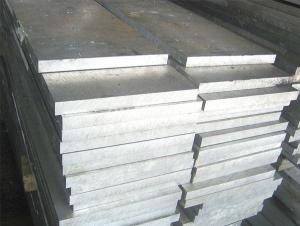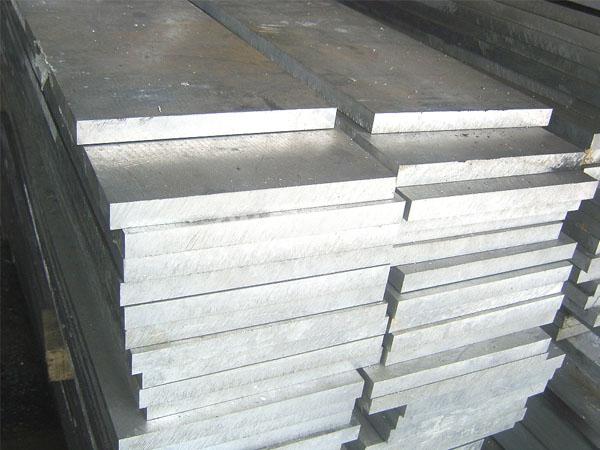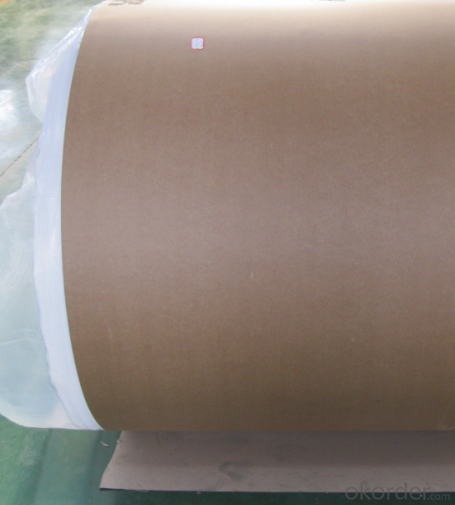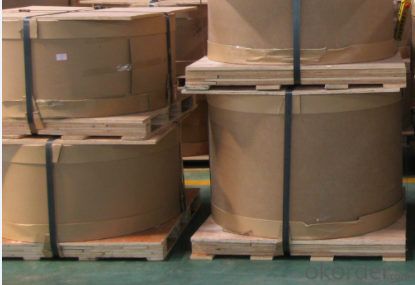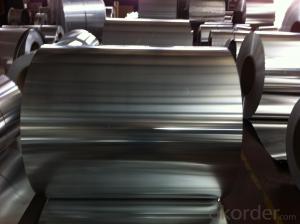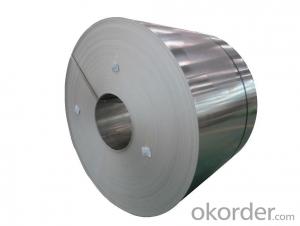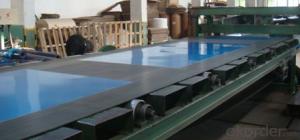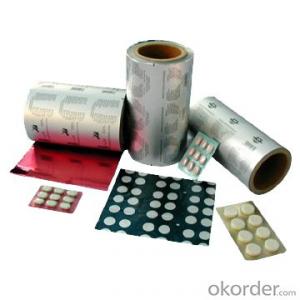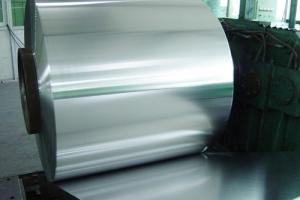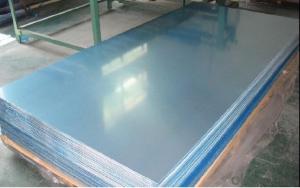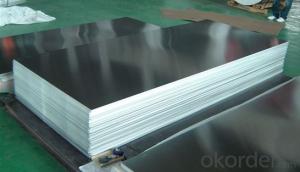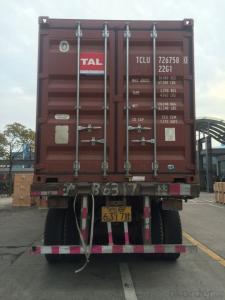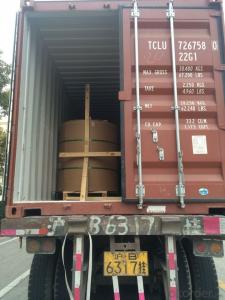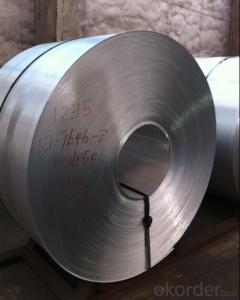Natural Aluminum Baking Sheets - Aluminum Alloy Plate Stocks in Warehouse with Best Price
- Loading Port:
- Shanghai
- Payment Terms:
- TT or LC
- Min Order Qty:
- 9 m.t.
- Supply Capability:
- 4000 m.t./month
OKorder Service Pledge
OKorder Financial Service
You Might Also Like
1.Structure of Product Description
Cold rolled aluminum sheet is widely used in the field of construction field and decoration field, etc.
There are many different grades, such as: 1000 series, 2000 series, 3000 series, 5000 series, 6000series, etc. The detailed grade are as follows: 1010, 1050,1060,1100, 2024, 3003, 3005, 3105, 5052,5754,5083,6061,6063,8011, etc.
The temper is include H14, H22, H24, H44,H112,H114,etc.
2. Main features of the product
a.Competitive price
b.Frist-Class Service.
c. Shortest service.
3. Image.
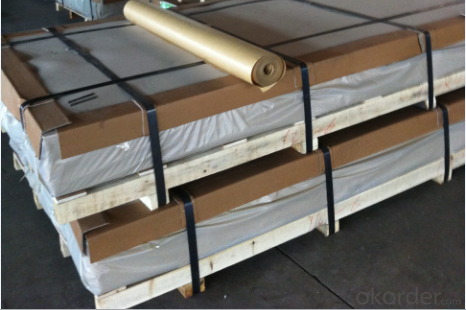
4. Product detailed sizes:
1000mm*2000mm, 1219mm*2438mm,1220mm*2440mm, 1250mm*2500mm,1500mm*3000mm, etc.
5. FAQ:
What is the quality standard?
---Usually our standard is GB3880-2006 or others.
What is the width range?
---It is from 1000mm to 2500mm, etc.
What is the length range:
---It is from 2000mm to 6000mm, etc.
What is the MOQ for your products yet?
---Normally it is around 5 tons/each size.
---Normally they are aluminum sheet, checkered sheet, mirror finish aluminium sheet, aluminum casting coil, etc.
- Q: I am trying to find away of turning aluminum oxide or alumina into just aluminum. Please post all ideas i dont care how crazy.
- usually, in industy, the common way used is electrolysis...aluminium oxide, Al2O3 is heated until it's molten...then cryolite is added to bauxite (aluminium oxide) to lower its melting point before electrolysis is carried out to obtain pure Al metal...
- Q: What are the different joining methods for aluminum sheets?
- Aluminum sheets can be joined using various methods, each with its own advantages and considerations. Common techniques for joining aluminum sheets include: 1. Welding: Aluminum sheets can be welded together by melting them and using a filler material. Welding techniques like gas tungsten arc welding (GTAW), gas metal arc welding (GMAW), or laser welding are commonly used. Welding creates strong and durable joints, but it requires skilled labor and can be time-consuming. 2. Adhesive bonding: Another method is adhesive bonding, where a specialized adhesive or glue is applied to the surfaces to be joined. Adhesive bonding offers benefits like excellent corrosion resistance, uniform stress distribution, and the ability to join different materials. However, it requires proper surface preparation and can be affected by temperature and humidity. 3. Mechanical fastening: Mechanical fastening involves using bolts, screws, rivets, or clips to join aluminum sheets. It is a simple and cost-effective method that allows for easy disassembly if needed. However, it may create stress concentrations around the fasteners and the joints may not be as strong as welded ones. 4. Friction stir welding: Friction stir welding is a newer method gaining popularity for aluminum sheets. It involves rotating a non-consumable tool along the joint line, generating friction and heat that softens and joins the sheets. Friction stir welding offers benefits like high joint strength, low distortion, and defect-free welds. However, it requires specialized equipment and is limited to certain sheet thicknesses. 5. Clinching: Clinching is a cold joining method that deforms the sheets using a punch and die without melting them. The sheets are pressed together under high pressure, creating a mechanical interlock. Clinching is a fast and cost-effective method that doesn't require additional materials, but it may cause visible surface deformation. When choosing a joining method for aluminum sheets, factors like joint strength, corrosion resistance, aesthetics, production cost, and specific application requirements should be considered. Each method has its own advantages and limitations, so the most suitable technique depends on the project's specific needs.
- Q: How do you join aluminum sheets together?
- There are several methods to join aluminum sheets together, depending on the specific application and desired strength of the joint. Here are some common techniques: 1. Welding: Aluminum can be welded using various methods such as gas tungsten arc welding (GTAW or TIG), gas metal arc welding (GMAW or MIG), or even laser welding. These processes involve melting the aluminum at the joint and adding a filler material to create a strong bond. Welding offers excellent strength and durability but requires skill and appropriate equipment. 2. Riveting: Rivets can be used to fasten aluminum sheets together. This method involves drilling holes through the sheets and using a rivet gun to insert and deform a rivet, creating a secure joint. Riveting is relatively simple and quick, but it may not provide the same strength as welding. 3. Adhesive bonding: Industrial adhesive bonding is a popular method to join aluminum sheets. Specialized adhesives formulated for aluminum bonding are applied to the surfaces, which then cure and form a strong bond. Adhesive bonding is advantageous as it distributes stress evenly and can join dissimilar materials. However, it may not be suitable for high-temperature or high-stress applications. 4. Mechanical fasteners: Screws, bolts, or nuts can be used to fasten aluminum sheets together. This method involves drilling holes and using fasteners to secure the sheets. Mechanical fasteners provide good strength and allow for disassembly if needed. However, they may require additional maintenance and can cause stress concentrations around the holes. 5. Clinching: Clinching is a cold joining method where aluminum sheets are pressed together using a punch and die. The process deforms the materials and creates a mechanical interlock, forming a strong joint. Clinching is a quick and cost-effective method, but it may not be suitable for thin or highly rigid sheets. Ultimately, the choice of joining method depends on factors such as the required strength, aesthetics, cost, and ease of fabrication. It is recommended to consult with a qualified professional or follow specific guidelines to ensure a successful and reliable joint.
- Q: Can the aluminum sheets be used for manufacturing furniture?
- Yes, aluminum sheets can certainly be used for manufacturing furniture. Aluminum is a lightweight and strong material, making it ideal for creating furniture that is both durable and easy to move around. Additionally, aluminum is resistant to corrosion, so it can withstand exposure to various environmental conditions. Moreover, aluminum sheets can be easily shaped and formed into different designs, allowing for versatility in furniture manufacturing. Overall, using aluminum sheets for furniture manufacturing can result in high-quality, stylish, and long-lasting pieces.
- Q: Are aluminum sheets resistant to chemicals?
- Aluminum sheets, in general, possess resistance to a wide range of chemicals. This is due to the presence of a natural oxide layer on the surface of aluminum, which acts as a protective shield against corrosion and chemical reactions. The stability of this oxide layer enables it to withstand the effects of most acids, alkalis, and organic solvents. However, it should be noted that certain chemicals, such as strong acids or bases, as well as some halogenated compounds, have the capacity to corrode aluminum. Moreover, prolonged exposure to particular chemicals or extreme conditions may compromise the integrity of the oxide layer, rendering aluminum more susceptible to corrosion. Consequently, when considering the use of aluminum sheets in specific applications, it is crucial to carefully evaluate the chemical environment and potential interactions.
- Q: How do aluminum sheets compare to steel sheets in terms of weight?
- Aluminum sheets, when compared to steel sheets, are significantly lighter in weight. This is because aluminum has a lower density than steel, making it a more lightweight and versatile material. The specific weight difference between aluminum and steel sheets will depend on the thickness and dimensions of the sheets. However, generally speaking, aluminum sheets can weigh about 1/3 less than steel sheets of the same size. This makes aluminum sheets an ideal choice in applications where weight is a critical factor, such as in the aerospace industry or for lightweight structures.
- Q: Are aluminum sheets suitable for medical equipment?
- Yes, aluminum sheets are suitable for medical equipment. Aluminum is a lightweight metal that offers excellent durability and corrosion resistance, making it a popular choice for medical equipment manufacturing. It is used in various medical devices such as surgical instruments, diagnostic equipment, and patient monitoring systems. Aluminum sheets are easy to shape and form, allowing for the fabrication of intricate medical equipment designs. Additionally, aluminum is non-toxic and non-magnetic, which are important properties in medical settings. Its ability to withstand sterilization processes such as autoclaving further enhances its suitability for medical equipment. Overall, aluminum sheets are a reliable and versatile material for the production of medical equipment.
- Q: How do you prevent oil or grease stains on aluminum sheets?
- To avoid oil or grease stains on aluminum sheets, there are several steps you can take: 1. Make it a habit to regularly clean the aluminum sheets. This will help eliminate any existing stains and prevent them from building up. Use a mild detergent or a mixture of water and vinegar to clean the sheets. Avoid using harsh cleaners or abrasive pads as they may harm the surface. 2. Apply a protective coating to create a barrier between the aluminum surface and oil or grease. Clear lacquer or anodizing are examples of coating options available. These coatings create a smooth and impermeable surface, making it difficult for oil or grease to penetrate and stain the aluminum sheets. 3. Use a barrier material if you frequently work with oil or grease near aluminum sheets. Consider using a silicone mat or placing parchment paper or aluminum foil between the aluminum sheet and the source of oil or grease to prevent direct contact. 4. Proper storage is crucial for preventing oil or grease stains on aluminum sheets. Store them in a clean and dry environment, away from potential sources of contamination. Keep the sheets covered or wrapped in a protective material to prevent dust, dirt, or oil from settling on the surface. 5. Handle aluminum sheets with clean hands. Ensure your hands are free of oil or grease before touching the sheets. Even small amounts of oil or grease on your hands can transfer onto the sheets and cause stains. If necessary, wear clean gloves or use clean tools when working with aluminum sheets to minimize the risk of stains. By implementing these preventive measures, you can significantly reduce the likelihood of oil or grease stains on your aluminum sheets, keeping them clean and in excellent condition.
- Q: How does the purity of aluminum affect its properties as a sheet?
- The purity of aluminum plays a significant role in determining its properties as a sheet. Higher purity levels of aluminum generally result in improved mechanical properties, thermal and electrical conductivity, as well as better corrosion resistance. When aluminum is highly pure, meaning it has a low level of impurities, it becomes more malleable and ductile, making it easier to form into thin sheets. This makes highly pure aluminum sheets more suitable for applications where intricate shapes and designs are required. Additionally, the high electrical conductivity of pure aluminum makes it an excellent choice for electrical applications, such as wiring and circuit boards. It allows for efficient transmission of electricity and reduces the risk of overheating. Moreover, the thermal conductivity of pure aluminum makes it an ideal choice for heat transfer applications. Aluminum sheets with high purity can efficiently dissipate heat, making them well-suited for applications such as heat sinks and radiators. Furthermore, the corrosion resistance of aluminum increases with higher purity. Pure aluminum forms a protective oxide layer on its surface, which helps prevent corrosion and extends the lifespan of aluminum sheets in various environments. In summary, the purity of aluminum directly affects its properties as a sheet. Higher purity levels enhance its mechanical properties, electrical and thermal conductivity, as well as corrosion resistance, making it more versatile and suitable for a wide range of applications.
- Q: why does aluminum sheet not react with sulfuric acid nut react with hydrochloric acid?
- aluminum reacts with hydrochloric acid,generating aluminium chloride which can dissolve in water. but aluminum reacts with sulfuric acid, generating aluminum sulfate which can't dissolve in water and will generate aluminum sulfate, a layer of protective film, preventing aluminum from reacting with sulfuric acid, so there is no significant phenomena.
Send your message to us
Natural Aluminum Baking Sheets - Aluminum Alloy Plate Stocks in Warehouse with Best Price
- Loading Port:
- Shanghai
- Payment Terms:
- TT or LC
- Min Order Qty:
- 9 m.t.
- Supply Capability:
- 4000 m.t./month
OKorder Service Pledge
OKorder Financial Service
Similar products
Hot products
Hot Searches
Related keywords
